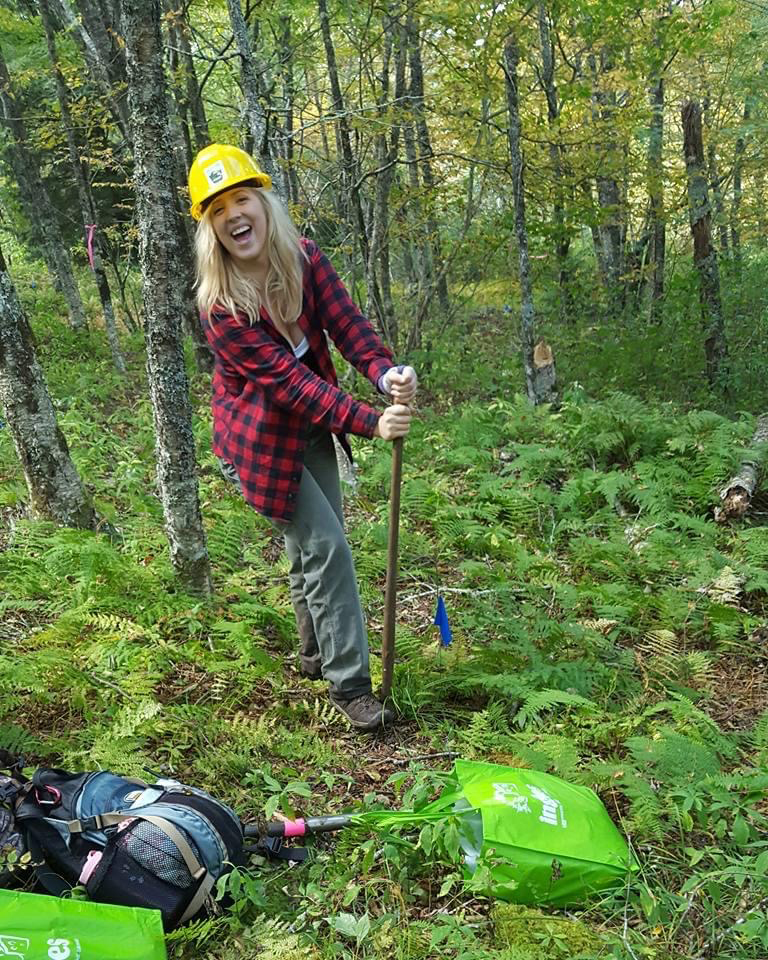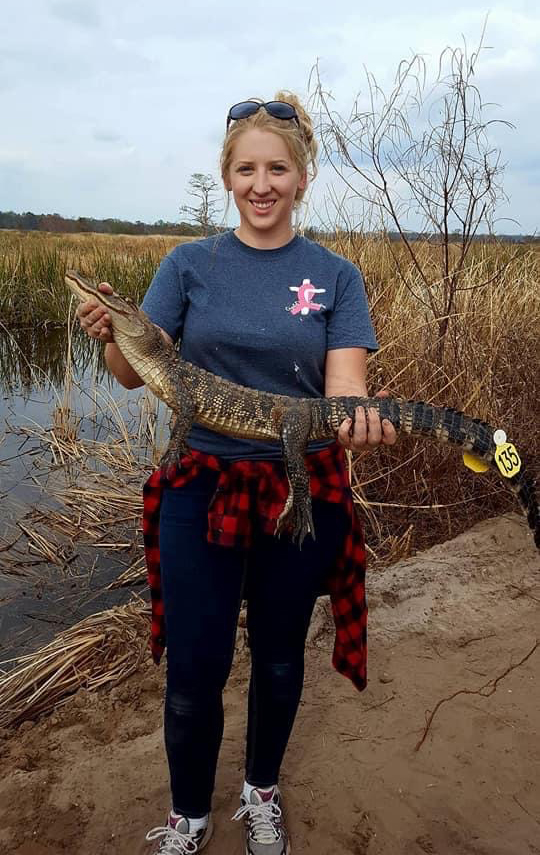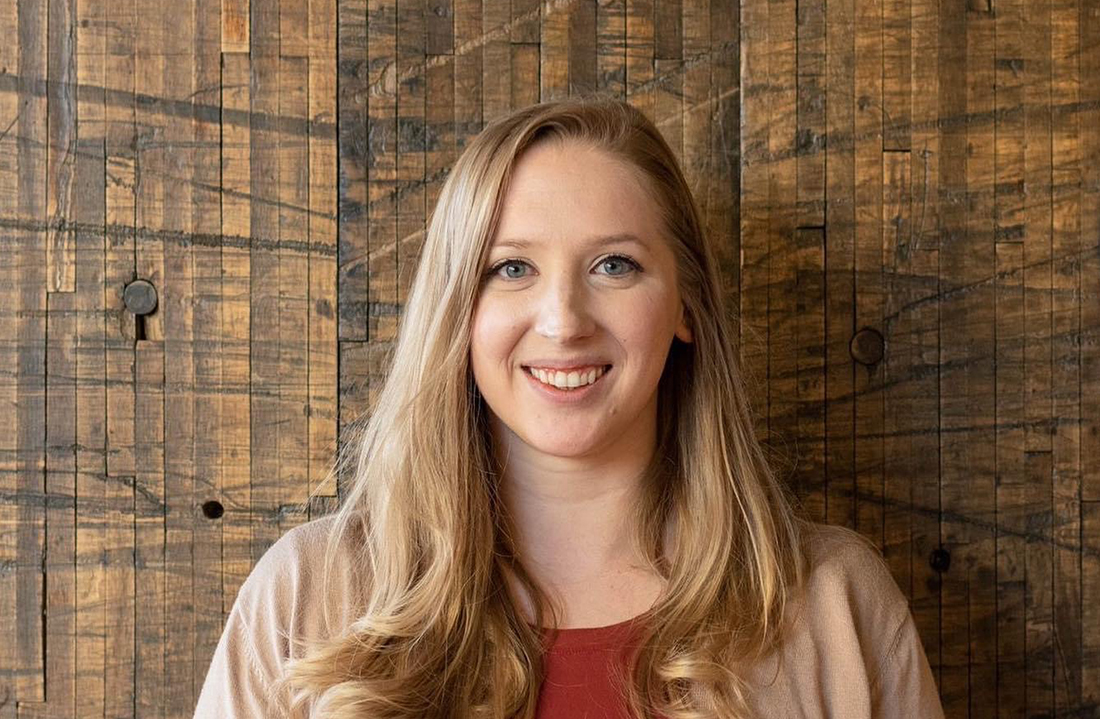BY JODI PETERSON
CEMML planner Amber Bumgardner Mense was born in the Piedmont region of North Carolina, about 30 miles west of Charlotte. From an early age, she was interested in the outdoors. “My parents met at the local volunteer fire department, and I grew up at that fire department watching all types of interesting things happen, including prescribed burns conducted with the Forest Service,” she said. In high school, Mense joined the department and pursued firefighter and Emergency Medical Technician certifications.

After graduating, she attended nearby Gaston College and earned an associate degree in Applied Sciences. She tried courses in nursing and worked at a veterinary clinic but realized that she wanted an outdoor career. After moving to the Blue Ridge Mountains, she got another associate degree, this time in Fish and Wildlife Management at Haywood Community College. She continued her education at North Carolina State University, receiving a bachelor’s in Fish, Wildlife, and Conservation Biology with a minor in Forest Management. While at Haywood, Mense earned certifications in wildland firefighting, chainsaw use, wilderness first aid, and geographic information systems. She worked part-time as well during college, coordinating volunteers for field work, monitoring bats, conducting wildlife and vegetation surveys for local governments, and analyzing river otter diets. And on top of all that, said Mense, “I volunteered every chance I could to get field experience so I could be successful once I graduated. I wanted to make sure I stood out when I applied to jobs.”
The timing wasn’t great, though—she graduated in May 2020, at the height of the COVID pandemic, and the natural resource positions she had lined up lost their funding. She couldn’t even do volunteer work, since most groups had to shut down such programs. “I ended up delivering pizzas to make ends meet,” Mense said.
That fall, she and her new husband, Alex, moved to the Florida Panhandle for his job with the U.S. Department of Agriculture’s Wildlife Services program. She volunteered with the U.S. Fish and Wildlife Service when COVID restrictions subsided, then learned of a CEMML Early-career Development Program position at nearby Eglin Air Force Base in wildlife and outdoor recreation.
“I loved it,” she says, of her time as a technician in the early-career program at Eglin. “I got to expand my experiences from mountainous and piedmont areas to coastal ecosystems.” She helped with a wide variety of tasks, such as surveying sea turtle nests, relocating gopher tortoises, banding red cockaded woodpeckers, hazing black bears, and preparing for prescribed burns. She worked on permits to ensure no endangered species would be jeopardized by base projects, then helped with a massive natural resources management plan.

In the meantime, Mense and her husband were expecting their first child. Her efforts on the natural resources plan led CEMML and Eglin to extend funding so she could continue to work on it after her maternity leave. In fall 2022, when CEMML had a full-time opening for a Natural Resources Planning Specialist, she applied and got the job.
Now she helps her CEMML team develop Integrated Natural Resources Management Plans for Air Force bases across the U.S. The job draws on her skills, experience, and knowledge of Eastern ecosystems, which she’s augmenting with learning about the wide variety of ecosystems found in the West. “It’s always a new challenge,” Mense said, “learning to adapt the base’s natural resources program’s desires to fit within Air Force needs and regulations.”
She’s also on the hiring committee for the CEMML internship program where she got her start. “It’s been a joy to help interview and select interns for several installations, and hopefully help the managers of tomorrow launch their careers,” she said.
Mense plans to continue her education through CSU—she hopes to earn her graduate certificate in Sustainable Military Lands Management, then go on to an online master’s degree in Fish, Wildlife, and Conservation Biology. “I’d like to become a subject matter expert on Eastern ecosystems and wildlife to fill that gap on our team,” she said. “I’m excited to continue helping shape the future of natural resources on military installations.”
Now, the only time she touches a pizza is when she’s eating one. “CEMML’s Early-Career Development Program is excellent to get your foot in the door and develop the skills necessary to continue in this field,” Mense said. “I hope people will apply because you never know where you could end up.”
 Amber Bumgardner Mense on the CSU campus. Courtesy Amber Mense.
Amber Bumgardner Mense on the CSU campus. Courtesy Amber Mense.